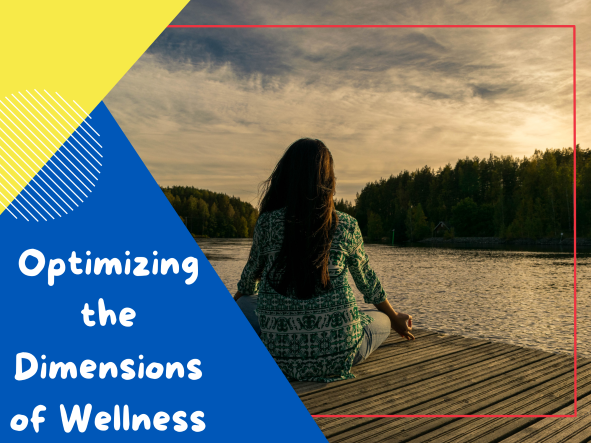Optimizing the Dimensions of Wellness
That was my middle school’s physical education department’s motto. However, being strong can be complicated. It takes a great deal of focused effort to live a balanced, calm life in satisfied harmony.
Most of us are familiar with the five points of wellness advertised by health care programs and classes. These are essential individual balancing points. Understanding the elements that go into making your body and mind strong leads to reliable self-care skills and a happier, more satisfying life.
The five wellness elements involve the physical, emotional, social, intellectual, and spiritual aspects of life that make up our overall well-being. To personalize what matters most to you, a sixth element is worth considering.
Physical:
Taking care of your physical body allows you to work well in your environment and have mental peace while dealing with the stresses of life. This includes eating well, exercising adequately, and avoiding harmful habits.

Practicing self-care in the physical category takes commitment, but it’s worth it! Try to eat five fruits and veggies every day. Avoid smoking, drinking, and other harmful habits.
Physical care also includes catching and treating potential physical imbalances early, such as illnesses or injuries. Schedule regular doctor, dentist, and other medical checkups. Pay attention to what your body tells you daily and adjust accordingly.
Every night, the average adult needs at least seven hours of sleep. Turn off electronic devices thirty minutes before your bedtime and set a strict schedule to ensure you achieve an adequate amount of sleep.
Attending to your physical body will lead to increased energy, endurance, and self-esteem. To be an involved and energetic teacher, you need to look after and care for your body. Your body is what allows you to function throughout your day, so attend to its needs diligently.
Emotional:
It requires continual evaluation to ensure your emotional slice of Healthy-Life pie has not turned soggy or moldy. To be emotionally healthy, you must express and accept a wide range of emotions in both yourself and others. Emotionally stable people are in healthy relationships, are comfortable with and understand their limitations, cope well with stress and responsibility, and are generally enthusiastic about life.
Wow, that is a pretty ambitious list. But don’t let the impossibleness of the list overwhelm you. There are many ways to improve yourself and your mental health. Be willing to own up to mistakes you’ve made. Apologize readily and without reserve. Also, recognize that it is okay to say no to things without feeling guilty. Nothing is worth your mental health, so stand up for yourself.

A gratitude journal is another way to balance your emotional health. Every day, write down something that you are grateful for which brings you joy, keeps you safe, or helps you in another way. Find ways to express your gratitude. Statistics have shown that expressing gratitude leads to a happier life and sustained well-being.
Social:
Being socially healthy requires engaging in meaningful relationships with other people. It means interacting with others and with your community. One of the best ways to have a stable social life is to be an active part of a give and receive social network.
A reliable social network is friends and family that you regularly interact with whom you can trust to help you or counsel you when you need it. It also requires you to do the same for those friends and family when they need it. This kind of network allows you to have meaningful people in your life, and as a bonus, it also boosts your emotional health.
Expand your social network. Work on relating to diverse people. This will open up opportunities to have more friends if you are more tolerant of other views and beliefs. Also, work hard to be respectful and courteous whenever handling any type of conflict. People want to be friends with friendly people!
Finally, be willing to put yourself in social situations to meet new people. Go to conferences, dances, parties, classes, and other social events to expand your network and create a strong and stable social safety net.
Intellectual:
The good news is if you’re a teacher reading this article, you pretty much have this area down to a science (no pun intended). Human beings are naturally curious, and we need to continually learn to find stability and peace in our mental psyche.
Keeping an open mind helps you to receive new information. Think about and critique the information you obtain, consider it, and draw your own conclusions.
One way to add to your intellectual well-being is investigating interests outside of your vocation. For example, I want to dance professionally, but I have learned to bead and make jewelry. This is not a necessary task for the career I want, but it challenges my mind to think creatively and has a rich history that I can learn about.
Think of something you’ve always wanted to learn more about or a skill you’ve wanted to develop. Go, learn, study it. Accomplish it. Intellectual engagement bumps you out of the ruts of life to put your feet on new and exciting paths.
Read magazines and online blogs. Surround yourself with useful information about the world we live in and the processes of ordinary things. This will fill you with a sense of accomplishment and worth as the knowledge you gain directly corresponds to your daily life.
Spiritual:
Spiritual well-being is about connecting yourself to your ideals, morals, and beliefs. It requires living as your standards say you should. It gives meaning, purpose, and direction to make life worth living.
To enhance your spiritual well-being, you need to understand your core values. List the top five values that are most important to you. Then consider what you need to do to uphold those values. Make goals to improve and set aside time every day to reflect on how you are doing.
Being spiritually well-grounded will prevent dissonance in your mind. If you say you value something, but act contrary to it, your mind will be unsettled due to the lack of consistency in your moral character. Being consistent with your chosen values promotes peace of mind and increased well-being.
The Mysterious Sixth Area:
A sixth element is batted around by various groups. Some groups include a Financial, Recreational, Occupational, or Vocational element.
These other categories all seem to agree on one thing: we need work or interaction that brings us joy and makes us feel valued. Teaching is incredibly valuable. Students need teachers who are willing to help and advocate for them to succeed in school and their future lives.
A healthy teacher is a happy teacher. Be sure to watch over the state of your wellness in your work environment and activities to ensure you are making the best of this mysterious last category.
There are many different categories and types of self-care. A proper life balance helps increase overall wellness and contentment. By focusing on each element, you stabilize your life and health. Scheduling and establishing goals optimize your ability to promote life satisfaction and well-being.
Teacher Power
With so much going on, Teacher Power understands how hard it is to maintain a healthy lifestyle. Thank you for all you do! Teacher Power is here to support you in your journey to a more balanced and stable life!

Discover the power of Teacher Power Energy Drinks to energize your day. Teachers empower students to take on the world, and Teacher Power powers teachers. Our healthy energy drink powders are sugar-free, vegetarian, and keto-friendly. Don’t sugar up; power up with Teacher Power.
By: Lela Haroldsen
The content of Teacher Power’s website is for information only, not advice or guarantee of outcome. Information is gathered and shared from reputable sources; however, Teacher Power is not responsible for errors or omissions in reporting or explanation. No individuals, including those taking Teacher Power products, should use the information, resources or tools contained within to self-diagnosis or self-treat any health-related condition. Teacher Power gives no assurance or warranty regarding the accuracy, timeliness or applicability of the content.
Sources:
“7 Elements of Self Care.” Jonas Hill Hospital and Clinic. 2021. https://jonashill.org/7-elements-of-self-care/
“10 Amazing Statistics to Celebrate National Gratitude Month.” HALO. 2020. https://halo.com/10-amazing-statistics-to-celebrate-national-gratitude-month/#:~:text=In%20a%20study%20of%20800,well-being%20by%2010%25
“CDC - How Much Sleep Do I Need? - Sleep and Sleep Disorders.” Centers for Disease Control and Prevention. Centers for Disease Control and Prevention. 2017. https://www.cdc.gov/sleep/about_sleep/how_much_sleep.html
“Clark College - Home of the Penguin Nation.” Six Dimensions of Wellness, https://www.clark.edu/tlc/healthy-penguin/wellness-dimensions.php
Hubbard, Kylie. “Listen to the Podcast.” Her Story of Success Blog. https://herstoryofsuccess.com/six-dimensions-of-wellness/
Sinclair, Jenna. “What Is Social Well-Being? Definition, Types, and How to Achieve It.” BetterUp. 15 Feb. 2021. https://www.betterup.com/blog/what-is-social-well-being-definition-types-and-how-to-achieve-it

